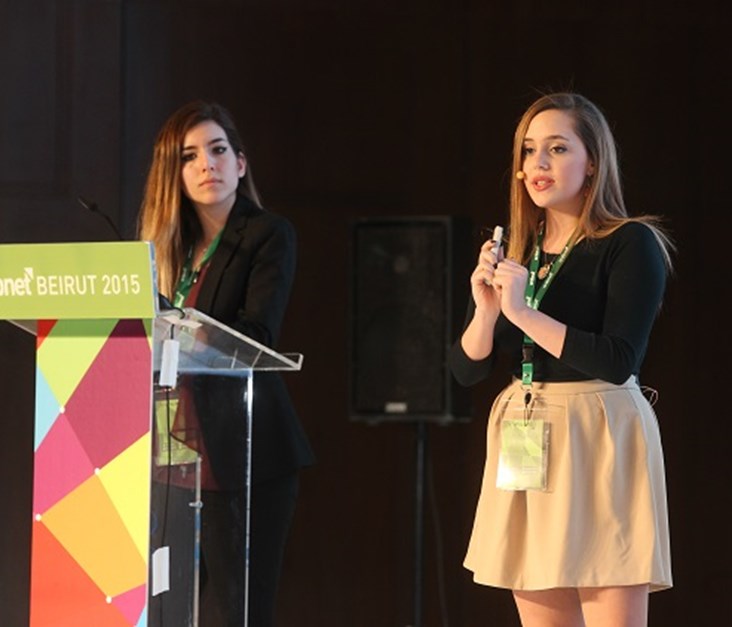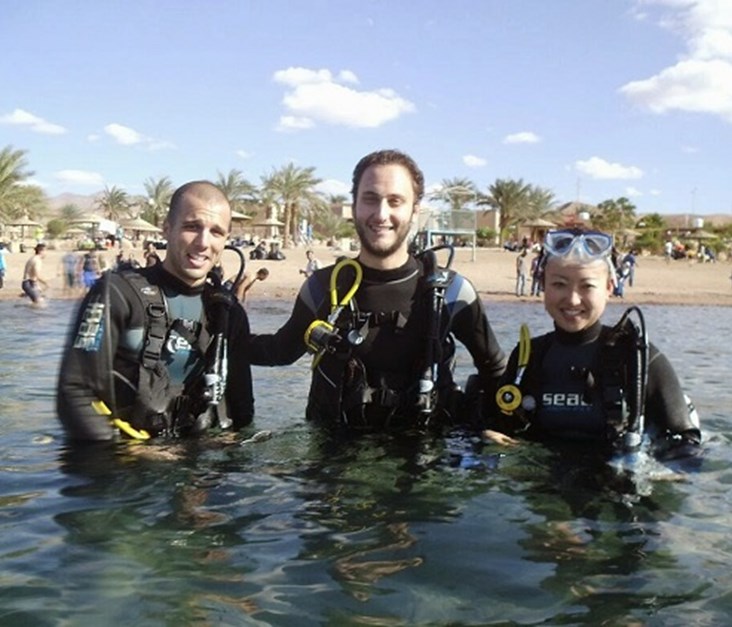
Picture taken from the Comedy show "Web Therapy"
Fadfid — the Arabic word for “vent out”— is an online psychotherapy platform that connects patients seeking expert psychological advice to specialists across the Arab world. Palestinian IT students Mays Attari and Mohammad Abuqrae may have found the perfect digital venue that civilians of their own country, as well as other Arab countries, need to refer to in order to cope with the increasing pressure of their daily lives.
“The psychological turmoil that we live through, the trauma we witness in the Palestenian and the Arab community as a whole is definitely not easy,” co-founder Mays Attari told Arabnet. “There are of course psychological experts who can help us, but we might feel discouraged to seek treatment because of the social stigma associated with it. This is how we got the idea.”
Launched a few months ago, Fadfid has attracted clients from all over the Arab world. Patients from Algeria, Jordan, Kuwait and KSA have reached out eagerly for the platform, encouraged by the strict privacy rules and social distance offered by online counseling. “Names are not required,” said Attari. “We request only a username and an email for the registration process.” After logging on, patients then choose a suitable specialist from among 8 branches of psychological issues (emotional problems, eating disorders, anger management, etc…). Sessions are conducted online using a web cam, where ultimate privacy is provided for both parties. “Many of the sessions are done across countries, where a patient is treated by a specialist from another country.”

The current fee charged for every session is a modest $35, though Attari says that they are currently studying the prices. “It will vary from one country to another. Most of our [Palestinian]specialists work with NGOs where they are paid inadequate salaries. So paying them was an incentive for them to join us. A specialist in Jordan for example, might view it differently.”
As students at the renowned Palestinian Birzeit University, Attari and Abuqrae had enrolled at Qiyadat, a local leadership program that aims to prepare selected university students to be prominent and skillful leaders in whatever field they choose. Through a span of 6-8 months of hands-on experience and practical feedback, the cofounders sought “to find an innovative solution using technology to solve pervasive problems in society.”
Their innovative idea allowed them to enter Palestine’s first business incubator “Fastforward”, which was also established this past year. Fadfid received a funding of $50,000. “The money was important of course, but what was invaluable was that they teach you HOW to think and not what to think in terms of studying the market. After two months only we had established a fixed income from the sessions being booked, with some clients reaching up to 8 or 9 follow-up sessions.”

Next came what Attari considers to be the most challenging step: selecting qualified specialists — most of which was done online through painstaking validation of certificates and references, as well as Skype interviews and “tests” with their on-board specialist. “We had them do a free session with “undercover” patients who would invent certain cases and see how the interviewees would deal with them. This was especially essential for us because we are very protective of out patients’ privacy, so there is no way for us to know what goes on in the sessions.”
As a marketing method, Fadfid offered numerous free first-sessions to interested clients who were attracted by their theme and. “Almost every client that has booked for a session has chosen to follow up with us. We offered more than 50 free sessions, and the specialists themselves were very cooperative in this strategy. They appreciated the shift we are trying to make in the understanding of our culture towards psychiatric health.” Fadfid currently has 13 specialists working abroad in MENA, with plans to recruit 10 more. The cofounders are cautious about revealing the number of patients or sessions scheduled to date. They regard their current performance as “competent”, with plans to expand to Lebanon and Syria soon. “The idea is to not have to be limited by time and place, and we want people to stop being cautious about the social stigma associated with going to a psychiatrist.”
Latest Business
Intelligence Report














